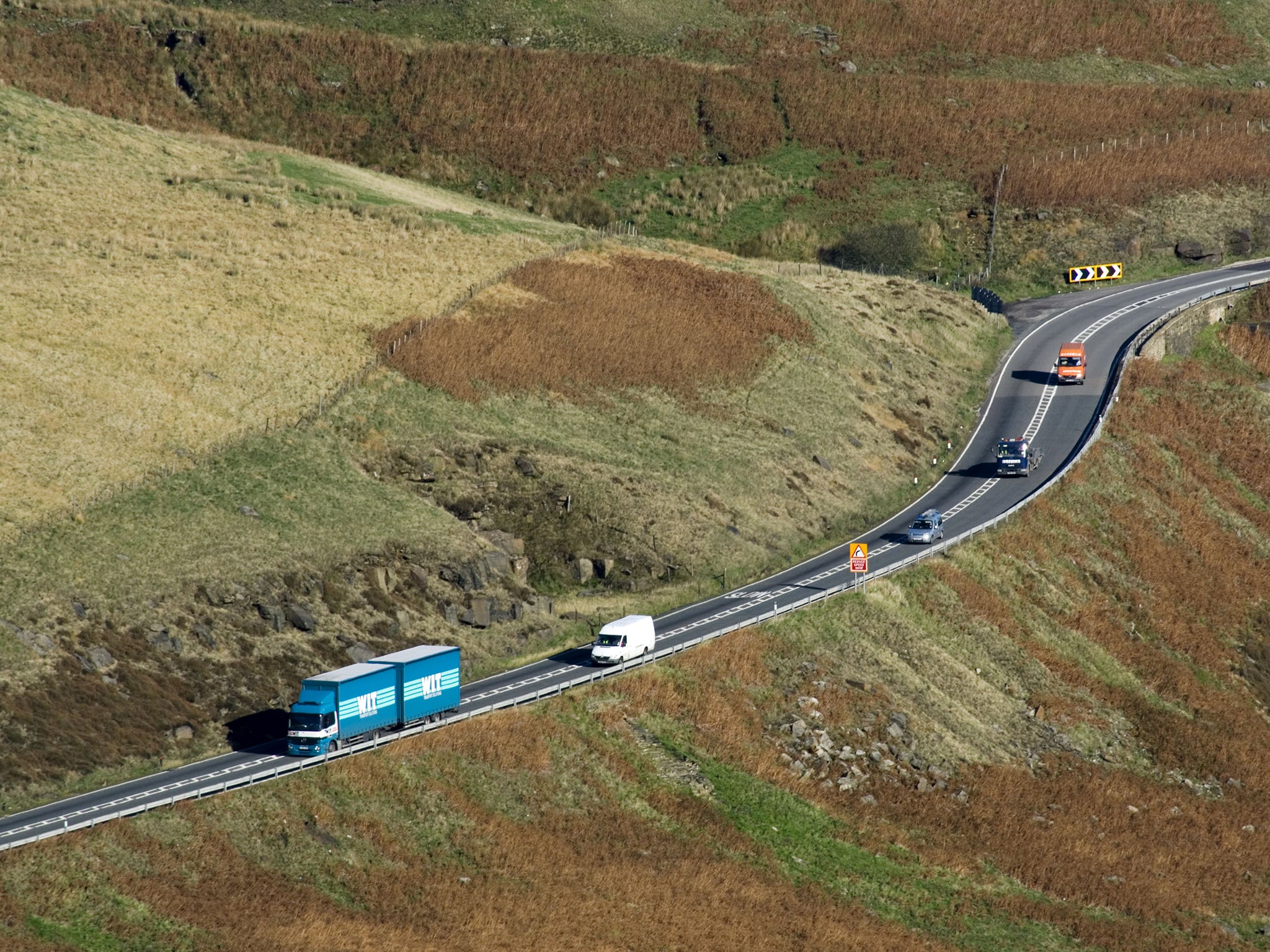Trans-Pennine Tunnel: 18-mile Peak District road 'could pose psychological difficulties for drivers'
The 'practical and psychological difficulties of driving in a long tunnel environment should not be underestimated'

An 18-mile road tunnel bored beneath the Peak District could become the longest ever constructed in Europe, according to a report published on 30 November, but the “psychological difficulties” faced by drivers travelling so far underground would have to be considered before it is built.
An interim report on the proposed Trans-Pennine Tunnel said the ambitious £6 billion project would reduce journey times and improve transport links between Sheffield and Manchester, resulting in increased productivity of up to £421m a year.
However, it added that the “practical and psychological difficulties of driving in a long tunnel environment should not be underestimated”, warning that solutions would need to be found to problems such as driver claustrophobia, limited visibility and poor air quality.
The Highways England report said the proposed tunnel, which would be built under the A628 Woodhead Pass, could cut current road journey times between Sheffield and Manchester by up to half an hour and avoid delays caused by bad weather over the Pennines. Its length would be between 12.4 and 18.6 miles, potentially outstripping the 15.2-mile Laerdal Tunnel in Norway.

The report said the geology of the Pennines was “generally suitable” for the construction of twin bored tunnels – one for each direction of travel – but that their diameter would have to be limited to around 15 metres.
It concluded: “The construction of a new strategic road link between Manchester and Sheffield is technically feasible, although it is likely to include a tunnel (or series of tunnels) that could be longer than any road tunnel constructed in Europe to date.”
However, it added that careful attention would have to be paid to the design of the tunnels to make them safe for drivers unused to spending so long underground. Lighting and patterns could be projected onto the walls to “mitigate the effects of claustrophobia, disorientation and tiredness”, it suggested, adding that simulators could be used to test drivers’ responses before the tunnel was constructed.
The project is being supported by Jonathan Reynolds, the MP for Stalybridge and Hyde, who said the report marked an “another important step finding a solution to the dreadful traffic problems suffered by people in my constituency”.
However, others have already raised safety concerns. Stephen Joseph, chief executive of the Campaign for Better Transport, described the proposal as “madness” and said the plans should be shelved “before any more money is wasted”.
He added: “Not only would it generate more traffic and increase already dangerous air pollution, these long road tunnels are notoriously dangerous, especially when freight is moved through them, and those examining the proposed scheme would do well to look at the safety of similar road tunnels on the continent.”
Potential sources of funding for the scheme have not yet been discussed, but charging drivers a toll for use of the tunnel could be considered, the report said. Another report examining the transport, social, economic and environmental aspects of the project is due to be published in October next year.
A Department for Transport spokesman said: “The Government’s ambitious plan to build a Northern Powerhouse and close the economic gap between north and south is becoming a reality. We are already investing £13bn in transport projects in the north. This report has found that there is a clear strategic case for investment in a tunnel, and that there are no technical barriers that would rule it out. There is still more work to be done to assess any future costs and the potential benefits, but this is a promising start.”
Join our commenting forum
Join thought-provoking conversations, follow other Independent readers and see their replies
Comments
Bookmark popover
Removed from bookmarks